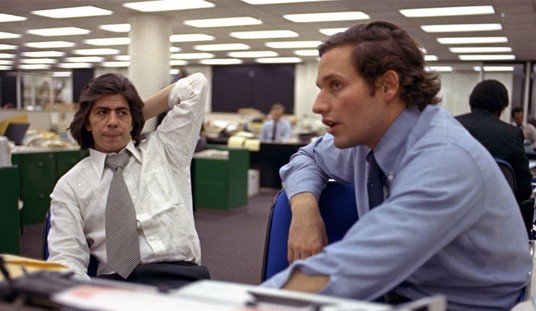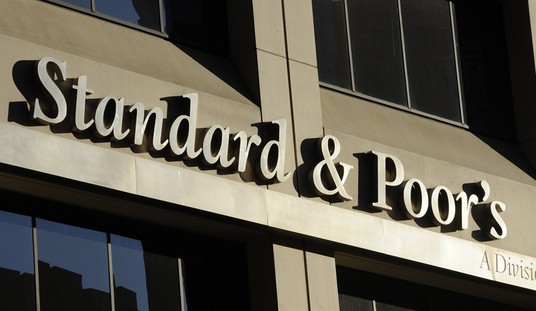Does it matter that Romney hasn’t worked for Bain & Company in nearly 20 years or are the optics of this one bad enough to make it newsworthy regardless?
The car dealership episode was one of the most controversial of the auto bailout — as many dealers across the country complained they were being put out of business by government fiat. A special inspector general looking into the matter concluded that the decision to slash dealerships resulted in the loss of thousands of jobs. But the Obama administration argued at the time that there were too many dealerships chasing too few customers and streamlining them was an important piece to getting GM and Chrysler back on their feet…
A 2010 report by the Special Inspector General for the Troubled Asset Relief Program reveals that Bain — referred to as “Bain Consulting” — was one of several private sector firms the Obama auto team turned to for advice as it wrestled with what to do about the dealerships. (Romney spent years at Bain Capital, a spin-off of Bain & Company, and also served as interim chief executive of Bain & Company during a turnaround effort.)…
“An expert from Bain Consulting also stated many dealerships have too much inventory relative to their market area, particularly in smaller markets or markets where there are more dealers than necessary, because they have to have sufficient diversity in their inventory to cover the manufacturer’s entire portfolio and to meet varied customer needs,” the inspector general’s report said.
“This leads to higher floor plan financing costs per vehicle. In addition, because it is difficult for a smaller dealership to match its mix of inventory with actual customer demand, they end up with higher quantities of slow moving inventory that can lead to a need for increased customer and dealer incentives to sell their vehicles.”
CNBC speculates that this might explain why Obama’s “car czar,” Steve Rattner, ended up slobbering all over Bain in a surprising op-ed in Politico today. Rattner purported to offer “full disclosure” in that piece by acknowledging that he’d worked with Bain Capital “on several projects” after Romney left, but he didn’t mention that the White House had been advised by its sister firm, Bain & Company (which Romney led briefly during the early 90s), on closing down dealerships as part of the GM restructuring. Maybe he figured Bain’s role in that was bound to come out sooner rather than later and decided to go on record as being a fan before reporters demanded to know why he accepted advice from those darned job-killing corporate vultures so despised by Democrats. An interesting quote given what happened with the dealerships: “While no one likes seeing jobs disappear, eliminating unnecessary overhead and even entire divisions if they cannot be made sufficiently profitable is at the heart of a successful economy — the process Joseph Schumpeter famously described as ‘creative destruction.’ How strange for conservatives like Newt Gingrich and Perry to be questioning the core of free market economics.”
And maybe this also explains why Romney was willing to implicitly equate what Obama did with the auto bailout to what Romney himself did at Bain Capital in the private equity industry. Romney may have calculated that if he tried to draw a sharp contrast between his own work and the White House’s handling of GM, the connection to Bain & Company would eventually trickle out and be used to embarrass him no matter how valid his point about the contrast. As it is, he has a ready-made defense once Obama starts demagoging him on jobs in the fall: If The One has such a problem with the Bain group’s perspective on layoffs, how come he accepted advice from the Bain group on layoffs? Now, the question: Will this end up increasing the pressure on Romney to release his tax returns? The NYT reported recently that to this day, as part of the deal he negotiated when he left, Romney still gets a share of Bain Capital’s profits. Whether he still gets anything from Bain & Company is unclear because not much is known about his finances; if he does, Gingrich could argue that he benefited financially from the fees Bain received for its advice on closing the dealerships even though Romney left the firm decades before.
I’ll leave you with this, from TPM:
“I would have preferred to wait, yes, to keep the bottle of whup-ass fresher,” one Obama campaign strategist told TPM. “At the same time — and this is important to note — having the Republicans eat their own actually makes the Bain story more potent than we ever could because it instantly validates it as a line of attack and falls on independent ears as a matter of legitimate debate, not as a partisan line of attack.”
And when the real Bain attack comes, it will be anything but old news to the voters it needs to reach. After all, it’s hardcore Republicans who are paying the closest attention to the GOP campaign and its Bain moment right now, and they’re not voting for President Obama anytime soon.
Update (1/13): Go ahead and scratch everything I wrote above. This is what I get for having trusted CNBC:
A previous story incorrectly reported that Mitt Romney’s former firm, Bain & Co., was part of a team of consulting companies that advised President Barack Obama on a decision to shutter car dealerships during the auto bailout.
Bain & Co. said it has no connection to the “Bain Consulting” firm referenced in government documents.
Apologies to Team Mitt for having passed along bad information.








Join the conversation as a VIP Member